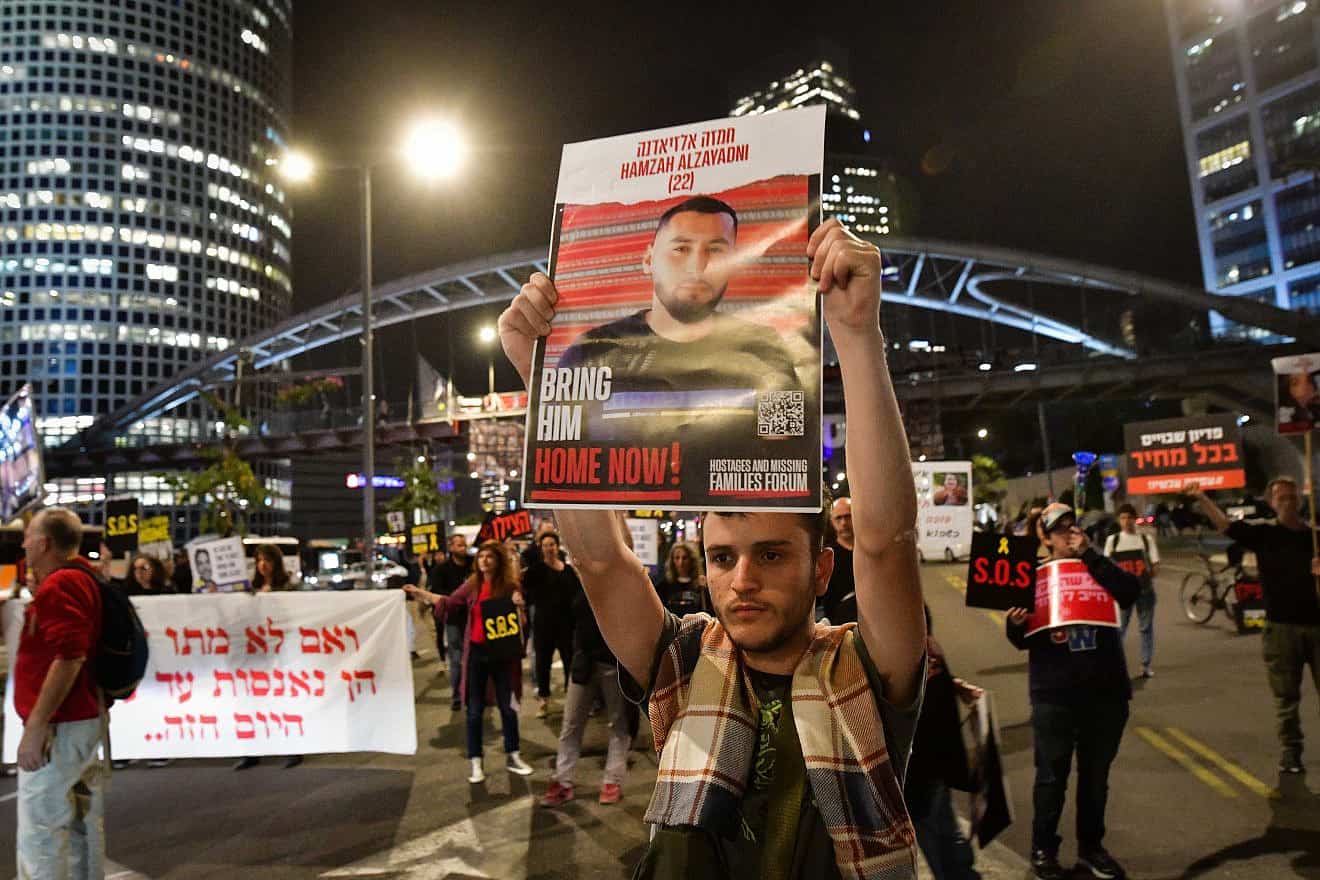The negotiations to forge a deal wherein Hamas would free hostages held in Gaza in return for a ceasefire and the release of terrorists held in Israeli prisons are at a delicate stage, Qatar’s prime minister said on Wednesday.
“We are going through a sensitive stage with some stalling, and we are trying as much as possible to address this,” said Mohammed bin Abdulrahman Al Thani. The Gulf nation is mediating the talks, along with Egypt and the U.S.
While Israel has shown flexibility in the hopes of arriving at a hostage deal, Hamas has impeded an agreement, Matthew Miller, the U.S. State Department spokesman, said on Monday.
“Israel moved a significant way in submitting that proposal,” Miller said during the department’s press briefing. “There was a deal on the table that would achieve much of what Hamas claims it wants to achieve, and they have not taken that deal.”
Hamas has dropped the number of hostages it is willing to release in the first stage of any deal with Israel from 40 to 20.
The terrorist organization is also demanding the release of more hardened terrorists and a higher ratio of jailed Palestinian terrorists released per Israeli abductee freed.
Hamas said on Saturday that it reaffirms “our adherence to our demands and the national demands of our people” for “a permanent ceasefire, the withdrawal of the occupation army from the entire Gaza Strip, the return of the displaced to their areas and places of residence, intensification of the entry of relief and aid and the start of reconstruction.”
On Wednesday, Israeli President Isaac Herzog reiterated the Jewish state’s “unequivocal” commitment to defending its people, including by working for “the immediate return home of all the hostages held in captivity by Hamas in Gaza.”
Aviram Meir, whose nephew Almog Jan is captive in Gaza, told JNS on Sunday: “I fear that the escalation with Iran will divert attention away from the abductees, the negotiations and the effort to return them home.”
Jan, 21, from Or Yehuda near Tel Aviv, was one of 40 people Hamas terrorists kidnapped from the Supernova music festival on Oct. 7.
On Saturday night, Iran and its terror proxies fired more than 300 missiles and unmanned aerial vehicles towards Israel, in a major response to the April 1 killing of several IRGC officers in Syria. The IDF and allied militaries intercepted 99% of the projectiles.
Israel’s War Cabinet is in the process of deciding on a “painful” response to the Islamic Republic, with Prime Minister Benjamin Netanyahu insisting on Tuesday that Jerusalem is determined to achieve victory over its enemies in “all sectors.”


























